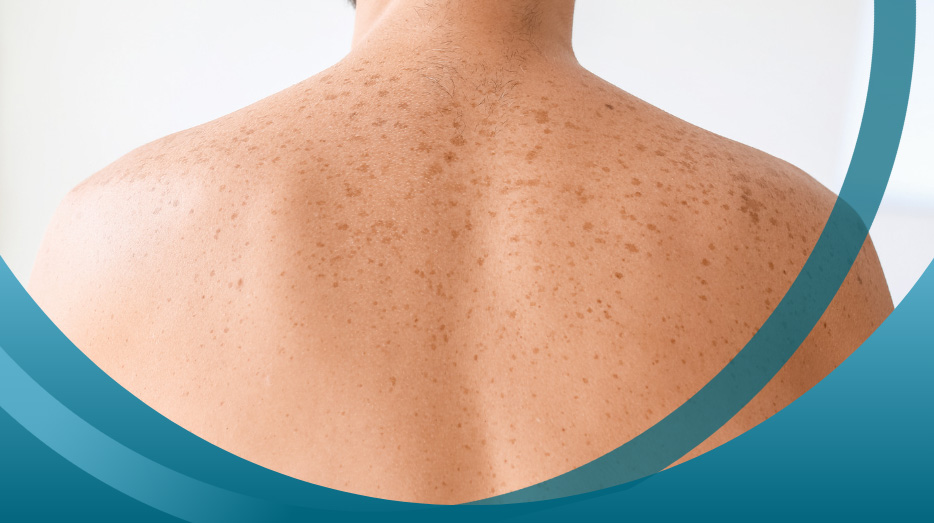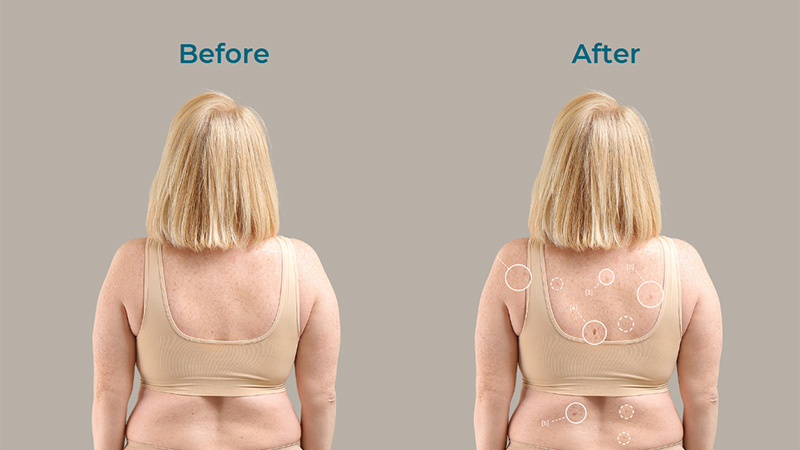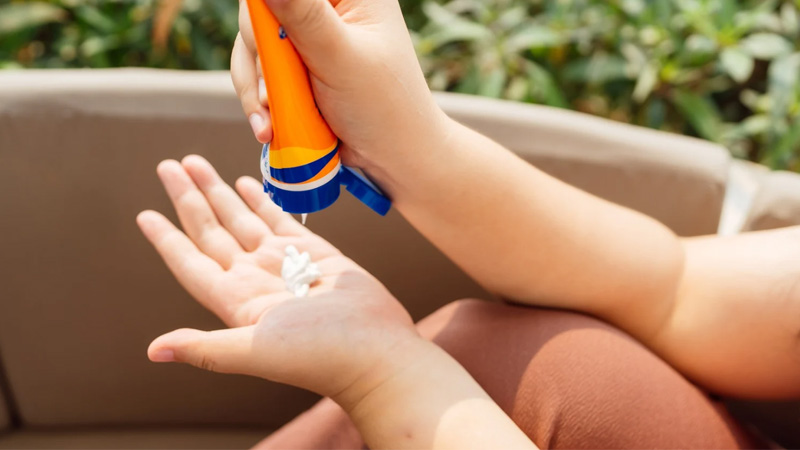With skin cancer affecting almost 2 out of 3 Australians in their lifetime, regular skin checks can be a useful tool for managing your skin health and detecting skin cancers or abnormalities – particularly in their early stages. But what does a skin cancer screening involve, and how can you prepare for one?
What is skin cancer screening?
A skin cancer screening is a non-invasive procedure where a dermatologist or an accredited skin cancer doctor examines your skin for changes, such as unusual moles or spots. While the specific process may differ between healthcare providers, the aim is to identify areas that may require closer observation or further investigation, as early identification can help inform the next steps in managing your health.
How is a skin cancer screening done?
A skin cancer screening involves a detailed examination of your skin to assess moles, spots, or lesions that may need further evaluation. This comprehensive check includes all areas of the body, such as the scalp, between fingers and toes, and the soles of the feet, ensuring no regions are overlooked.
At Skintel, we approach seeing skin differently!
Our innovative four-step protocol involves:
1. Body Map
Using cutting edge like a total body scan, we provide a more comprehensive mole map compared to traditional methods based on photos. This system captures every visible surface of your body in under two minutes.
2. Dermoscopy
Following the total body scan, any moles or areas of concern are then examined using a dermoscopy (epiluminescence microscopy). This tool allows us to look beneath the surface of your skin at up to 200X magnification. You will be fully gowned and only need to uncover the mole briefly.
3. Optical Biopsy
If further investigation is needed, an optical biopsy may be performed. This non-invasive diagnostic tool helps to provide more detailed information on any areas of concern. It’s fast, painless, and leaves no scarring, making it a much more attractive option than traditional surgery, particularly for moles on the face.
4. Review
We will review the findings of the screening with you, and provide you with a detailed report which outlines any recommendations for the next steps.
How long does a skin cancer screening take?
A screening typically takes about 15-30 minutes, depending on factors such as the number of spots that need detailed examination or the potential need for an optical biopsy.
How often should you get a skin cancer screening?
The frequency of skin cancer screenings depends on individual circumstances. While there are no official guidelines for skin cancer screening, many people are recommended to have an annual skin cancer screening.
For those at higher risk—such as individuals with fair skin, a history of sunburn, or a family history of melanoma—more frequent screenings may be necessary. To determine how often to get skin cancer screening, consult a healthcare professional for tailored advice.
How to prepare for a skin cancer screening
Preparing for a skin cancer screen can help ensure a thorough examination. Here are some tips to consider:
- Avoid makeup and lotions: These can conceal skin changes. Skip makeup, nail polish, and heavy lotions on the day of your appointment.
- Dress appropriately: Wear loose, comfortable clothing that is easy to remove for a head-to-toe examination.
- Note changes: Make a mental or written note of any new or changing moles or spots to share with your doctor.
- Avoid tanning: Sunburn or tanning can make it harder to identify changes in your skin.
How much does a skin cancer screening cost?
The cost of a skin cancer screening can vary depending on the provider and location. The cost of a skin cancer check at Skintel is $290.
Screenings may be partially covered by private health insurance, though we recommend confirming your entitlements with your provider.
Why is skin cancer screening important?
With skin cancers being the most commonly diagnosed cancers in Australia, accounting for approximately 80% of cancer diagnoses, it is important to stay vigilant when it comes to your skin health.
Regular skin cancer screening plays a key role in identifying changes to your skin that may need further evaluation. Detecting potential skin cancers early may provide a broader range of management options and help reduce the likelihood of complications.
Book a skin cancer screening
Regular skin checks are a proactive step in maintaining your skin health and detecting any potential issues early.
If you’re worried about a concerning mole, we encourage you to schedule a body map as soon as you can. We’re here to support you in taking great care of your skin. Contact us today to make an appointment.
Disclaimer
All information is general and not intended as a substitute for professional advice. Skintel can consult with you regarding your individual health needs.
References
- Cancer Council NSW, About skin cancer, https://www.cancercouncil.com.au/skin-cancer/about-skin-cancer/, [Accessed 21 January 2025]
- Health Direct, Skin cancer and melanoma, https://www.healthdirect.gov.au/skin-cancer-and-melanomas, [Accessed 21 January 2025]
- Cancer Council NSW, Checking for skin cancer , https://www.cancercouncil.com.au/cancer-prevention/screening/checking-for-skin-cancer/, [Accessed 21 January 2025]
- Health Direct, Should I be checked for skin cancer?, https://www.healthdirect.gov.au/should-I-be-checked-for-skin-cancer#check, [Accessed 21 January 2025]
- Cancer Council, Skin Cancer, https://www.cancer.org.au/cancer-information/types-of-cancer/skin-cancer, [Accessed 21 January 2025]
- Cancer Council, Early detection of skin cancer, https://www.cancer.org.au/about-us/policy-and-advocacy/prevention/uv-radiation/related-resources/early-detection, [Accessed 21 January 2025]





